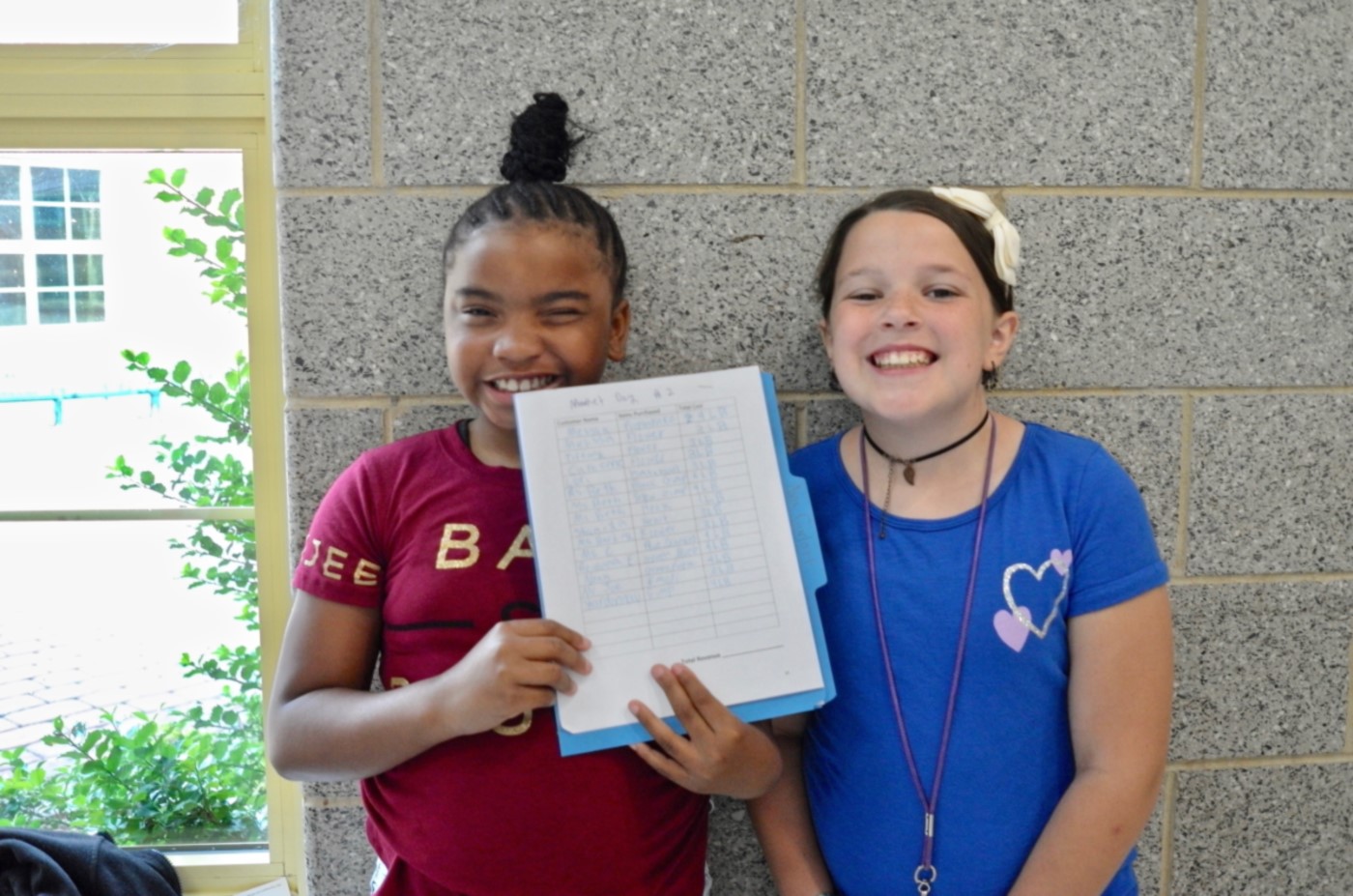On the second-to-last day of school, the cafeteria at Bear’s Wilbur Elementary School was abuzz with entrepreneurial spirit. Fourth-grader Valeria Lemus was doing a brisk trade in brightly-colored, handcrafted butterflies.
“You can put them in your hair, or you can put them on a bag or use them as a bookmark,” she said of her versatile craft.
The sale, supervised by teacher Erin Boettcher, was the culmination of Mini-Society, an economic education program offered by the University of Delaware’s Center for Economic Education and Entrepreneurship, an experiential learning center in the Alfred Lerner College of Business and Economics.
“Students love Mini-Society,” said Boettcher, UD Class of ‘92, graduate of the CEEE’s Master of Arts in Economics & Entrepreneurship for Educators program, and a teacher at Wilbur Elementary. “They’re so engaged with the society and their businesses that they don’t realize all the learning they’re doing along the way.”
Wilbur’s fourth-graders spent several weeks exploring basic economic concepts like supply and demand, pricing and the economic roles of consumers and producers. Students also learned financial responsibility by earning money to pay business expenses and using bank accounts for deposits and withdrawals.
Finally, after developing products, devising marketing plans and purchasing business licenses, students ran their own businesses on two Market Days, creating a marketplace for classmates to browse and purchase their goods.
Children and adults alike lined up for carnival-style games and handmade accessories. One savvy young businesswoman gave away popsicle-stick jewelry racks with every purchase of handmade earrings.
Business partners Mark Caserta and Justin Wagner worked together on pet rocks decorated with animal and sports designs, with favorable results.
“We’ve sold four so far,” said Wagner as Market Day got underway. “The unicorns and the sharks are popular.”
After each Market Day concluded, students returned to the classroom to tally their profits and losses, and evaluate the differences between the two days.
“The most successful entrepreneurs were committed and dedicated to their product,” Boettcher said. “Their product was new or different, or innovative in some way. They carried out their idea through the the entire process, including advertising and considering their competition.”
“Most importantly,” she continued, “they used the first Market Day to adjust or make changes to the product. They really observed and listened to the customers around them.”
Mini-Society has been offered annually by the CEEE since 1976. According to the center’s statistics, the program has reached over 250,000 teachers and students over its 42-year history.
“It’s the one training program we offer every summer for teachers,” said Bonnie Meszaros, assistant professor of economics and associate director of the CEEE, who co-leads the training program with Boettcher.
“It has so much to offer kids that goes beyond economics,” Meszaros added. “Problem solving, critical thinking, learning how to communicate and get along with others … it provides every student a way to be successful.”
Limited space is available for this year’s summer teacher training for Mini-Society, scheduled for July 10-12 at Wilbur Elementary.




